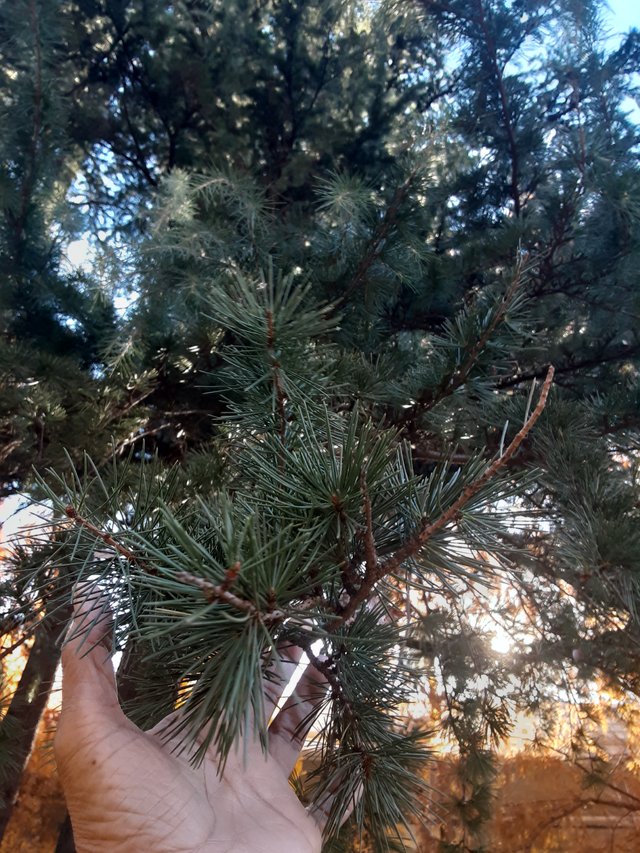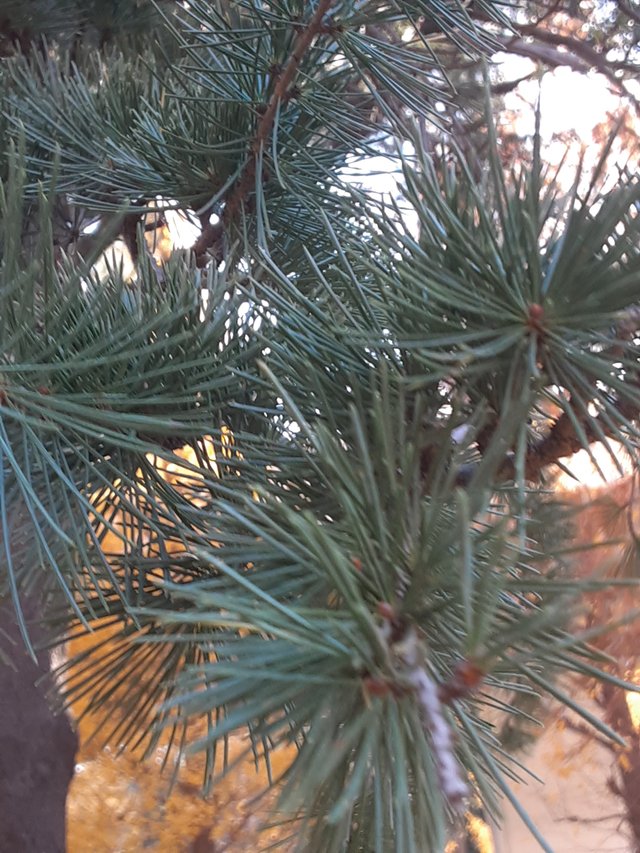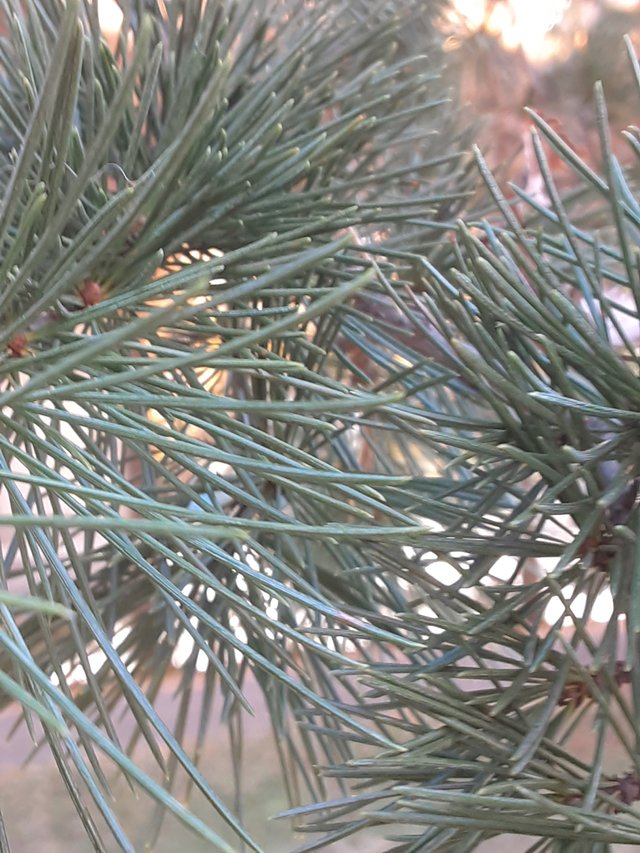The Scots Pine (Pinus sylvestris) has distinctive blue-green needles arranged in pairs, which are adapted for survival in harsh environments and play crucial roles in photosynthesis, temperature regulation, and reproduction

Pinus sylvestris, commonly known as the Scots Pine, is a hardy evergreen coniferous tree native to Europe and Asia. It's easily recognizable by its distinctive reddish-brown bark, which peels away in thin flakes, revealing a smoother, orange-colored layer beneath.
Leaves:
The leaves of the Scots Pine are needle-like, typically 2-7 centimeters long and less than 2 millimeters wide. They are arranged in pairs (fascicles) and have a bluish-green color. These needles are an important adaptation for the tree's survival in harsh environments. Their waxy coating helps to reduce water loss, while their tough, needle-like shape protects them from damage by wind, snow, and ice.

The leaves of the Scots Pine also play a crucial role in photosynthesis, the process by which the tree converts sunlight into energy. The needles are densely packed with chlorophyll, the green pigment that absorbs sunlight. This allows the tree to photosynthesize even in low light conditions, such as during winter or in deep shade.
In addition to their role in photosynthesis, the leaves of the Scots Pine also help to regulate the tree's temperature. The needles can open and close tiny pores called stomata, which allow the tree to release water vapor and cool itself down. This process, known as transpiration, is essential for the tree's survival in hot, dry climates.

The leaves of the Scots Pine also play a role in the tree's reproduction. The tree produces both male and female cones, which contain the pollen and seeds, respectively. The wind carries the pollen from the male cones to the female cones, where it fertilizes the seeds. The fertilized seeds then develop into new Scots Pine trees.
Ref.:
 |  |
Upvoted! Thank you for supporting witness @jswit.